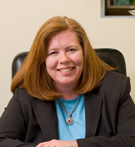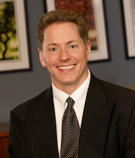Client Alert: Patient Protection and Affordable Care Act of 2010
Congress Passes "Patient Protection & Affordable Care Act"
After much debate and public discussion, Congress passed the "Patient Protection and Affordable Care Act of 2010" on March 23, 2010, with some changes made through the reconciliation process on March 26, 2010. Businesses and individuals need to be aware of how the Act will affect healthcare coverage. This Client Alert will focus on some of the more significant changes in the Act. You are encouraged to consult with your attorney to determine how the Act affects you or your business.
Changes Effective in 2010:
-Small employers will receive a tax credit for contributions to health insurance for their employees where the employer offers health insurance to its employees and contributes at least half the total premium cost. The business must have no more than 25 full-time equivalent employees and the average annual full-time wages must be no more than $50,000. The credit phases out as average wages increase from $25,000 to $50,000 and as the number of full time employees increases from 10 to 25. The credit can be worth as much as 35% of premiums paid by the employer. (Note that, in 2014, the credit can be worth as much as 50% of premiums paid by the employer.) The IRS has stated that the credit is available for premiums paid in 2010, prior to enactment of the Act. Owners are ignored in both the number of employees and the calculation of the average wage for purposes of this provision.
-Insurance companies can no longer deny coverage based on pre-existing conditions in children.
-Families can include their adult children, up to the time a child attains the age of 27, in their coverage.
-Insurance companies can no longer impose lifetime caps on coverage.
-There are limits on the ability of insurance companies to impose annual caps on coverage.
-Early retiree health benefits: Effective June 23, 2010 and expiring on January 1, 2014 (or when the $5 billion set aside to cover the cost is depleted), payments will be made to employer-sponsored health plans on behalf of an early retiree. An early retiree is an individual aged 55 and older who is neither an active employee nor eligible for Medicare.
-Medicare beneficiaries will receive a rebate check to account for the Medicare Part D coverage gap, otherwise known as the "donut hole."
-Tax credits are available for investments in new therapies to prevent, diagnose and treat acute and chronic diseases.
Changes Effective in 2014:
-Insurance Exchanges: States are required to establish Insurance Exchanges to facilitate the purchase of qualified health plans by individuals and small group markets. Individuals will be able to enroll in plans through the Insurance Exchange.
-Employers with more than 50 employees will pay penalties if they do not provide coverage. Employers with less than 50 employees will be exempt from this penalty.
-Insurance companies may no longer deny coverage for pre-existing conditions in adults.
-Insurance companies may no longer impose annual caps on coverage.
-Individuals will be eligible for tax credits for health insurance premiums paid through Insurance Exchanges where the individual's income is above Medicaid eligibility and below four times the federal poverty level, and where they are not eligible for other coverage. Individuals who do not qualify for this credit may, under certain circumstances, be able to use their employer premium contribution ("vouchers") to obtain insurance through an Insurance Exchange.
-Individuals are required to obtain acceptable health insurance or pay a penalty. Individuals will not have to pay the penalty if affordable coverage is not available.
-Insurance companies may not impose a waiting period in excess of 90 days.
-Insurance companies may not drop coverage because an individual chose to participate in a clinical trial.
Coming Attractions (changes after 2014):
-States may allow large employers to offer coverage to employees through the Insurance Exchanges.
-Tax on "Cadillac plans": Where the annual premium exceeds $10,200 for single coverage and $27,500 for family coverage, the Act imposes a 40% tax on insurance companies and plan administrators.
-The Medicare Part D "donut hole" will be eliminated.
Antheil Maslow & MacMinn, LLP can provide guidance to our business clients and individual clients with respect to reviewing their healthcare coverage needs in light of recent legislative changes. Please contact Patricia Collins, Esquire at (215) 230-7500 to discuss any questions you have regarding the above issue or to schedule an appointment.
After much debate and public discussion, Congress passed the "Patient Protection and Affordable Care Act of 2010" on March 23, 2010, with some changes made through the reconciliation process on March 26, 2010. Businesses and individuals need to be aware of how the Act will affect healthcare coverage. This Client Alert will focus on some of the more significant changes in the Act. You are encouraged to consult with your attorney to determine how the Act affects you or your business.
Changes Effective in 2010:
-Small employers will receive a tax credit for contributions to health insurance for their employees where the employer offers health insurance to its employees and contributes at least half the total premium cost. The business must have no more than 25 full-time equivalent employees and the average annual full-time wages must be no more than $50,000. The credit phases out as average wages increase from $25,000 to $50,000 and as the number of full time employees increases from 10 to 25. The credit can be worth as much as 35% of premiums paid by the employer. (Note that, in 2014, the credit can be worth as much as 50% of premiums paid by the employer.) The IRS has stated that the credit is available for premiums paid in 2010, prior to enactment of the Act. Owners are ignored in both the number of employees and the calculation of the average wage for purposes of this provision.
-Insurance companies can no longer deny coverage based on pre-existing conditions in children.
-Families can include their adult children, up to the time a child attains the age of 27, in their coverage.
-Insurance companies can no longer impose lifetime caps on coverage.
-There are limits on the ability of insurance companies to impose annual caps on coverage.
-Early retiree health benefits: Effective June 23, 2010 and expiring on January 1, 2014 (or when the $5 billion set aside to cover the cost is depleted), payments will be made to employer-sponsored health plans on behalf of an early retiree. An early retiree is an individual aged 55 and older who is neither an active employee nor eligible for Medicare.
-Medicare beneficiaries will receive a rebate check to account for the Medicare Part D coverage gap, otherwise known as the "donut hole."
-Tax credits are available for investments in new therapies to prevent, diagnose and treat acute and chronic diseases.
Changes Effective in 2014:
-Insurance Exchanges: States are required to establish Insurance Exchanges to facilitate the purchase of qualified health plans by individuals and small group markets. Individuals will be able to enroll in plans through the Insurance Exchange.
-Employers with more than 50 employees will pay penalties if they do not provide coverage. Employers with less than 50 employees will be exempt from this penalty.
-Insurance companies may no longer deny coverage for pre-existing conditions in adults.
-Insurance companies may no longer impose annual caps on coverage.
-Individuals will be eligible for tax credits for health insurance premiums paid through Insurance Exchanges where the individual's income is above Medicaid eligibility and below four times the federal poverty level, and where they are not eligible for other coverage. Individuals who do not qualify for this credit may, under certain circumstances, be able to use their employer premium contribution ("vouchers") to obtain insurance through an Insurance Exchange.
-Individuals are required to obtain acceptable health insurance or pay a penalty. Individuals will not have to pay the penalty if affordable coverage is not available.
-Insurance companies may not impose a waiting period in excess of 90 days.
-Insurance companies may not drop coverage because an individual chose to participate in a clinical trial.
Coming Attractions (changes after 2014):
-States may allow large employers to offer coverage to employees through the Insurance Exchanges.
-Tax on "Cadillac plans": Where the annual premium exceeds $10,200 for single coverage and $27,500 for family coverage, the Act imposes a 40% tax on insurance companies and plan administrators.
-The Medicare Part D "donut hole" will be eliminated.
Antheil Maslow & MacMinn, LLP can provide guidance to our business clients and individual clients with respect to reviewing their healthcare coverage needs in light of recent legislative changes. Please contact Patricia Collins, Esquire at (215) 230-7500 to discuss any questions you have regarding the above issue or to schedule an appointment.
Seminar at Delaware Valley College's Center for Learning in Retirement
 John D. Trainer, Of Counsel for the Firm, has again been tapped to teach a five-week seminar on Estate Planning & Administration at Delaware Valley College’s Center for Learning in Retirement (“CLR”), beginning March 25, 2010 in Doylestown, Pennsylvania. Trainer’s annual class provides presentations and discussions focusing on what criteria are considered necessary to prepare estate documents, in order to minimize federal and state death taxes. Also covered are: recent repeal of the Federal Estate Tax and how this will impact estate planning; powers of attorney; the benefits of living wills; and processes involved in the administration of a decedent’s estate. Partner Michael W. Mills and Paralegal Sheila Kyle, also of Antheil Maslow and MacMinn, LLP, will instruct during the course.
John D. Trainer, Of Counsel for the Firm, has again been tapped to teach a five-week seminar on Estate Planning & Administration at Delaware Valley College’s Center for Learning in Retirement (“CLR”), beginning March 25, 2010 in Doylestown, Pennsylvania. Trainer’s annual class provides presentations and discussions focusing on what criteria are considered necessary to prepare estate documents, in order to minimize federal and state death taxes. Also covered are: recent repeal of the Federal Estate Tax and how this will impact estate planning; powers of attorney; the benefits of living wills; and processes involved in the administration of a decedent’s estate. Partner Michael W. Mills and Paralegal Sheila Kyle, also of Antheil Maslow and MacMinn, LLP, will instruct during the course.
Trainer, Of Counsel for Antheil Maslow & MacMinn, LLP, concentrates his practice in estate planning, estate administration, and elder law, and is a member and past president of the Bucks County Bar Association, a former member of the Disciplinary Board and Pennsylvania Bar Association House of Delegates, and serves on the Bucks County Estate Planning Committee. He received a Bachelor of Arts from Bucknell University, and his Law Degree from Villanova Law School.
Michael Mills, a member of the American and Pennsylvania Bar Associations, serves as a Partner for Antheil Maslow & MacMinn, LLP, specializing in the areas of taxation, estate planning and administration, estate and trust litigation, family wealth preservation, business succession planning, and the tax aspects of business formation, financing, reorganization, and acquisition transactions. He received a B.S. in Business & Economics from Lehigh University, and also obtained a J.D. from Rutgers University School of Law, and an LL.M. in Taxation from the New York University School of Law. Additionally, Mills is a Certified Public Accountant, and is a member of the AICPA and PICPA.
Celebrating over 15 years in business, Antheil Maslow & MacMinn, LLP is a full-service law firm with practice areas in Business & Finance; Death & Serious Injury; Estates & Trusts; Health Care; Labor & Employment; Litigation; Nonprofits; Real Estate & Land Use; and Tax. The Firm works with high net worth individuals, small to mid-sized, privately-held companies, nonprofits and heath care organizations in the Greater Philadelphia and New Jersey areas. Antheil Maslow & MacMinn, LLP is headquartered in Doylestown, Pennsylvania.
AMM Attorneys Stay Current on Toy and Consumer Product Safety Regulations/Issues
February, 2010: Bill Antheil and Joanne Murray attended the Toy Industry Association annual Toy Fair in NYC. Toy Fair is the industry’s biggest event, featuring manufacturers, testing companies and other stakeholders in the field of children’s products, as well as educational seminars on toy safety and other topics.
In addition, Joanne Murray participated in the 17th Annual Meeting and Training Symposium of the International Consumer Product Health and Safety Organization (ICPHSO). The event offered the opportunity to keep up to date on the latest developments in federal and state product safety laws and regulatory activities. Speakers included CPSC Chair Inez Tenenbaum, CPSC General Counsel Cheryl A. Falvey, Esquire, and other top-level CPSC policy-makers. Joanne found this Symposium to be a wealth of information which keeps her abreast of the CPSC's new initiatives including, of course, enacting new regulations under the CPSIA.
Patty Collins Participates in HITECH / HIPAA Training Seminar

On January 12, 2010: Patty Collins, an Associate of the firm, participated in a HITECH/HIPAA Training Seminar handling a number of current issues surrounding recently heightened Healh Information Technology Privacy and Security Regulations and their effect on Medical Practices, specifically. The Seminar was well attended and covered a variety of areas, including:
1.) How the HITECH Act changes HIPAA and the FTC Red Flag Rule
2.) The effects on policies & procedures concerning Protected Health Information (PHI)
3.) Business Associates Agreements and who is required to have one
4.) Penalties & fines for non-compliance
5.) In-office training solutions for policy & procedure implementation
6.) Outsourced solutions that help ensure compliance
Participants included:
Patricia Collins,
Attorney, Antheil Maslow & MacMinn Attorneys
Law Firm specializing in Healthcare
Heather McCloskey,
Principal, McCloskey Partners, LLC
HR consultants and HIPAA Compliance Trainer
Don Adriaansen,
Partner & Co-Founder, TITAN Mobile Shredding, LLC
NAID AAA Certified Document Destruction Company
Authorized Compliance Facilitator
Breakfast Sponsors:
American Office Systems
Newtown Office Supply
Client Alert- Repeal of Federal Estate Tax Effective January 1, 2010
 Repeal of Federal Estate Tax
Repeal of Federal Estate Tax
Joanne Murray Publishes in TD Monthly Online Toy Manufacturers' Trade Magazine
 Joanne Murray, an associate of the Firm, published an article entitled “Lead and Testing Under the CPSIA: What Toymakers Need to Know About Testing, Tracking and Content Limits” in the January issue of "TD Monthly", a web publication of the Trade Organization of the toy, hobby, game and gift industry. This article discusses how the new toy safety regulations apply to small to mid-sized toy manufacturers.
Joanne Murray, an associate of the Firm, published an article entitled “Lead and Testing Under the CPSIA: What Toymakers Need to Know About Testing, Tracking and Content Limits” in the January issue of "TD Monthly", a web publication of the Trade Organization of the toy, hobby, game and gift industry. This article discusses how the new toy safety regulations apply to small to mid-sized toy manufacturers.
To read the full article, open the following link: http://www.toydirectory.com/monthly/article.asp?id=4004
Joanne Murray Appointed to Posts at Bucks County Bar Association
 Joanne M. Murray has been elected to serve a three-year term on the Board of Directors of the Bucks County Bar Association. The Bucks County Bar Association, one of the oldest and most active bar associations in the United States, has over 700 members and is dedicated to providing support and fellowship for the advancement of the legal profession. Murray will also serve as Chair of the Women Lawyers Division of the Bucks County Bar Association for a one-year term. She has served as the Division’s Vice Chair for the past two years. Murray will preside at all meetings for the Women Lawyers Division, and will be responsible for planning events such as CLE programs, coordinating guest speakers, and planning the Division’s annual reception honoring a local woman who has contributed to the legal community.
Joanne M. Murray has been elected to serve a three-year term on the Board of Directors of the Bucks County Bar Association. The Bucks County Bar Association, one of the oldest and most active bar associations in the United States, has over 700 members and is dedicated to providing support and fellowship for the advancement of the legal profession. Murray will also serve as Chair of the Women Lawyers Division of the Bucks County Bar Association for a one-year term. She has served as the Division’s Vice Chair for the past two years. Murray will preside at all meetings for the Women Lawyers Division, and will be responsible for planning events such as CLE programs, coordinating guest speakers, and planning the Division’s annual reception honoring a local woman who has contributed to the legal community.
Susan Maslow Serves as Panelist in Leadership Program
 Susan Maslow, a Partner of the Firm, participated in the Free Enterprise session of the Central Bucks County Chamber of Commerce’s Leadership Advancement Program, which was held at Byers’ Choice, Ltd in Chalfont, PA at 8:30 am. Other panelists included Ben Bugajewski, CEO of, Bugajewski Facility Services and Bob Byers, Jr., CEO of Byers’ Choice, Ltd. The discussion was facilitated by Pete Bonacum, a business coach with Action Coach and an active member of the Leadership Advancement Program. Ms. Maslow relayed how she began her career as an attorney, shared some of the keys to her success and discussed the challenges and opportunities facing the business community in general in the hope of assisting the audience in their personal “rise to leadership”.
Susan Maslow, a Partner of the Firm, participated in the Free Enterprise session of the Central Bucks County Chamber of Commerce’s Leadership Advancement Program, which was held at Byers’ Choice, Ltd in Chalfont, PA at 8:30 am. Other panelists included Ben Bugajewski, CEO of, Bugajewski Facility Services and Bob Byers, Jr., CEO of Byers’ Choice, Ltd. The discussion was facilitated by Pete Bonacum, a business coach with Action Coach and an active member of the Leadership Advancement Program. Ms. Maslow relayed how she began her career as an attorney, shared some of the keys to her success and discussed the challenges and opportunities facing the business community in general in the hope of assisting the audience in their personal “rise to leadership”.
The Leadership Advancement Program of the Central Bucks County Chamber of Commerce is an exclusive benefit of membership designed for entrepreneurs, business and non-profit executives. The Panel Discussion was part of a nine month, eleven session program offering a select group of Chamber members rare, in-depth access to Central Bucks County’s most influential non-profit, corporate and government leaders. The Leadership Advancement Program is open exclusively to Chamber members who may apply for themselves or sponsor an employee. Applications are accepted throughout the year, with selections made by early September.
Mike Mills To Chair Orphans' Court Section of BCBA
 Michael W. Mills, Esq., a Partner of the Firm, will serve as Chair of the Orphans’ Court Section of the Bucks County Bar Association in the year 2010. Mike will help to oversee the efforts by the Orphans’ Court Section, whose mission is to provide a means by which lawyers who are interested in Orphans’ Court procedures and substantive estate laws can meet and discuss developments, as well as act as a liaison with the Court in dealing with these matters.
Michael W. Mills, Esq., a Partner of the Firm, will serve as Chair of the Orphans’ Court Section of the Bucks County Bar Association in the year 2010. Mike will help to oversee the efforts by the Orphans’ Court Section, whose mission is to provide a means by which lawyers who are interested in Orphans’ Court procedures and substantive estate laws can meet and discuss developments, as well as act as a liaison with the Court in dealing with these matters.
Michael Klimpl Speaks at the BCBA Bench Bar Conference
 Michael A. Klimpl, was a featured speaker at the Bucks County Bar Association’s Annual Bench Bar Conference, held this year in Cambridge, MD from September 24-26. Klimpl spoke at one of the breakout sessions on “Counseling Business Clients on Employment Law Issues,”. The Bucks County Bar Association, whose purpose is to provide support and fellowship for the advancement of the legal profession, brings lawyers and judges together to improve the justice system by hosting the Annual Bench Bar Conference.
Michael A. Klimpl, was a featured speaker at the Bucks County Bar Association’s Annual Bench Bar Conference, held this year in Cambridge, MD from September 24-26. Klimpl spoke at one of the breakout sessions on “Counseling Business Clients on Employment Law Issues,”. The Bucks County Bar Association, whose purpose is to provide support and fellowship for the advancement of the legal profession, brings lawyers and judges together to improve the justice system by hosting the Annual Bench Bar Conference. Michael Klimpl, a member of the Bucks County Bar Association, focuses his practice on Employment Law, Real Estate, Municipal Law, Zoning and Land Use, Civil Litigation, Estate Planning and Estate Administration. He has been a member of the Bucks County Solicitor’s Office since 1984, representing the interest of the County of Bucks, its Commissioners and various departments and agencies. Michael received his J.D. from Columbia University and B.A., cum laude, from the University of Pennsylvania.
